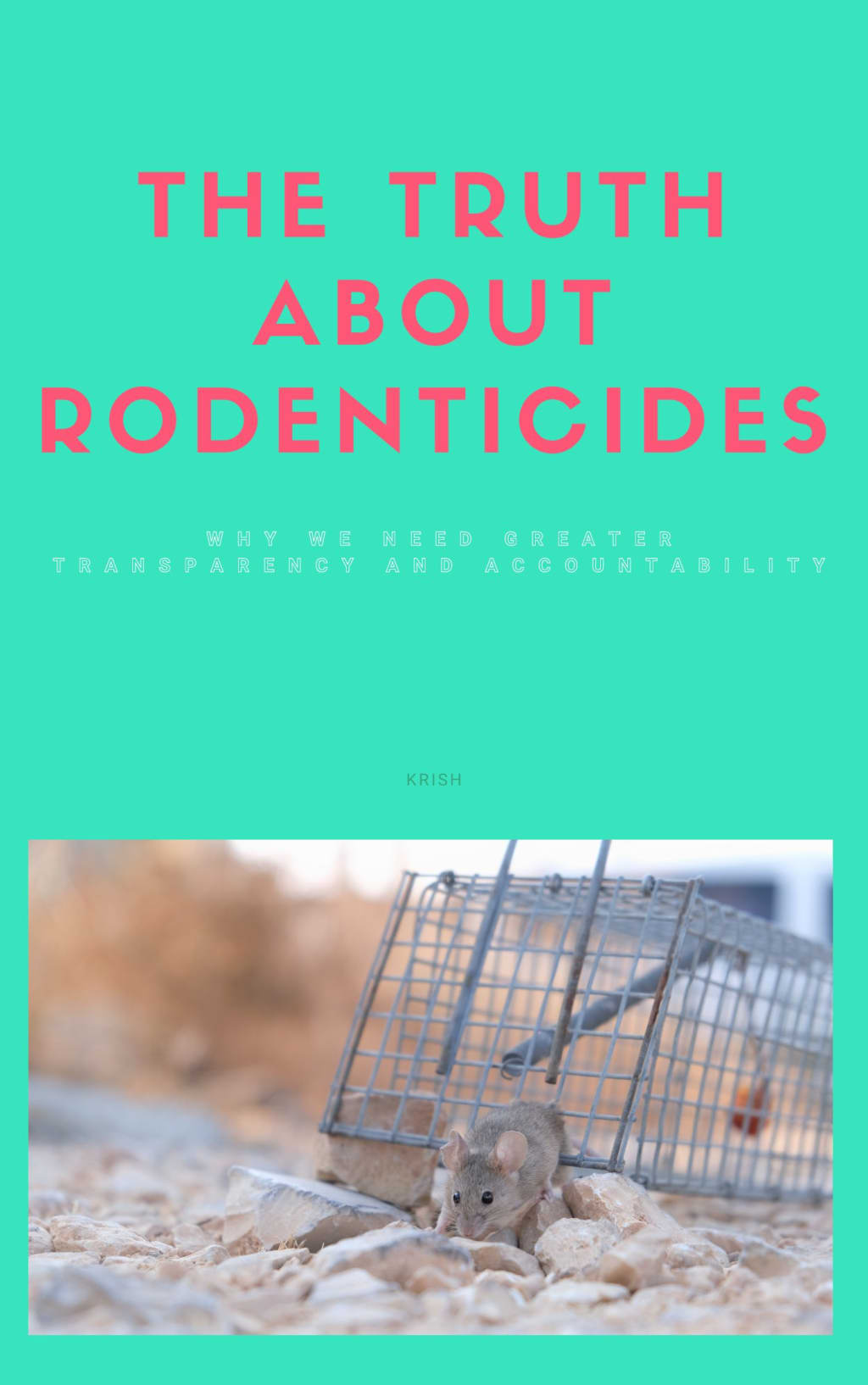
Rodenticides have been widely used for pest control, but their harmful effects on the environment and wildlife cannot be ignored. This article sheds light on the need for greater transparency and accountability in the use of rodenticides
Introduction
Rodents are considered a major nuisance for households, businesses, and farms. To tackle this problem, rodenticides have been extensively used as a means of pest control. However, the use of these chemicals has raised concerns about their impact on the environment, wildlife, and human health. It is essential that we take a closer look at the use of rodenticides and demand greater transparency and accountability in their use.
What are Rodenticides?
Rodenticides are a class of pesticides that are specifically designed to kill rodents. These chemicals come in various forms, such as pellets, baits, powders, and liquids, and are applied to areas where rodents are likely to roam. The active ingredients in rodenticides include anticoagulants, cholecalciferol, bromethalin, and zinc phosphide.
The Need for Rodenticides
Rodents can cause significant damage to property, spread diseases, and contaminate food. Rodenticides have been widely used as a means of controlling rodent populations and minimizing their impact. The use of rodenticides has been crucial in maintaining public health and preventing economic losses.
The Dark Side of Rodenticides
While the use of rodenticides has its benefits, it also has its downsides. One of the major concerns is the impact on the environment and wildlife. Rodenticides can be toxic to non-target species, such as birds of prey, mammals, and reptiles. These chemicals can also accumulate in the food chain, leading to long-term ecological impacts.
Lack of Transparency and Accountability
One of the major issues with the use of rodenticides is the lack of transparency and accountability. The sale and use of these chemicals are largely unregulated, and there is little oversight on how they are used. This lack of transparency makes it difficult to assess the impact of rodenticides on the environment and wildlife.
How Can We Achieve Greater Transparency and Accountability?
To achieve greater transparency and accountability in the use of rodenticides, there are several steps that can be taken. These include:
• Requiring more rigorous testing of rodenticides to ensure their safety for non-target species.
• Implementing labeling requirements to provide information on the risks and proper use of rodenticides.
• Strengthening regulations to restrict the sale and use of rodenticides to licensed professionals only.
• Encouraging the use of integrated pest management techniques that minimize the use of chemicals.
Alternatives to Rodenticides
There are several alternatives to rodenticides that can be used to control rodent populations. These include:
Traps: Live traps and snap traps can be used to capture rodents without killing them.
Biological controls: The use of natural predators such as cats, snakes, and birds of prey can help control rodent populations.
Physical barriers: Sealing entry points and eliminating food and water sources can help prevent rodents from entering buildings.
Frequently Asked Questions
Q: Are rodenticides safe for humans? A: When used properly, rodenticides are considered safe for humans. However, ingestion or inhalation of these chemicals can cause health problems.
Q: Can rodenticides harm pets?
A: Yes, rodenticides can be toxic to pets, especially dogs and cats, if ingested.
Q: How can I protect my pets from rodenticides?
A: Store rodenticides in secure locations where pets cannot access them. Use alternative pest control methods that do not involve the use of chemicals.
Q: Are there any eco-friendly rodenticides?
A: There are some eco-friendly rodenticides that use natural ingredients such as essential oils to repel rodents.
Conclusion
The use of rodenticides has been a common practice for pest control, but their impact on the environment, wildlife, and human health cannot be ignored. To ensure the responsible use of rodenticides, there needs to be greater transparency and accountability in their sale and use. We should demand more stringent regulations, labeling requirements, and alternatives to rodenticides that minimize their harmful impact. By taking these steps, we can protect our environment, wildlife, and our own health while still effectively controlling rodent populations. It's time to bring greater transparency and accountability to the use of rodenticides, for the good of all.
About the Creator
krish
Freelance writer and blogger sharing meaningful stories about universe, nature and humanity. Daring to know more, exploring and sharing insights on a journey of discovery. Join me in this never-ending quest for knowledge.






Comments
There are no comments for this story
Be the first to respond and start the conversation.